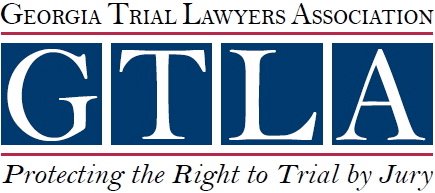Nominal damages are often misunderstood or overlooked. In this blog post, we aim to shed light on what nominal damages are, how they apply in Georgia personal injury cases, and why they are significant for both plaintiffs and defendants.
Whether you’re a victim seeking compensation for your injuries or a defendant facing a personal injury claim, understanding nominal damages is essential for making informed decisions and achieving just outcomes. So, let’s delve into the intricacies of nominal damages and explore their relevance in Georgia’s legal framework.




Definition of Damages
Damages refers to the monetary compensation awarded to a plaintiff to compensate for the losses and injuries they have endured due to the defendant’s actions. These losses may include medical expenses, lost wages, pain and suffering, and more. Damages aim to restore the plaintiff to the position they were in before the injury occurred, to the extent possible.
Economic Damages
Economic damages are those that can be quantified in monetary terms with relative certainty. These damages aim to compensate the plaintiff for the financial losses they have incurred as a direct result of the injury. Economic damages commonly awarded in personal injury cases include:
Medical Expenses: This includes the cost of medical treatment, surgery, medication, therapy, and any other healthcare expenses related to the injury.
Lost Wages: If the injury prevents the plaintiff from working, they may be entitled to compensation for lost income during the recovery period.
Property Damage: If the injury resulted in damage to the plaintiff’s property, such as a vehicle in a car accident, they may seek compensation for repair or replacement costs.
Loss of Earning Capacity: In cases where the injury leads to a permanent disability or impairment that affects the plaintiff’s ability to earn a living, compensation may be awarded for the loss of future earning potential.
Non-Economic Damages
Non-economic damages, also referred to as general damages, are more subjective in nature and are meant to compensate the plaintiff for intangible losses that are not easily quantifiable. These damages seek to address the pain, suffering, and emotional distress endured by the plaintiff as a result of the injury. Non-economic damages may include:
Pain and Suffering: This encompasses the physical pain and discomfort experienced by the plaintiff as a result of the injury, as well as any emotional distress or mental anguish caused by the incident.
Emotional Distress: Personal injury cases can have a significant impact on the mental well-being of the plaintiff, leading to anxiety, depression, PTSD, and other psychological issues for which compensation may be sought.
Loss of Enjoyment of Life: If the injury diminishes the plaintiff’s ability to participate in activities they once enjoyed, they may be entitled to compensation for the loss of quality of life.
Punitive Damages
In certain cases involving egregious misconduct or recklessness on the part of the defendant, punitive damages may be awarded in addition to compensatory damages. Punitive damages are intended to punish the defendant and deter similar conduct in the future. However, punitive damages are not awarded in every case and are typically reserved for situations where the defendant’s actions were especially egregious or malicious.
What are Nominal Damages?
Nominal damages are a symbolic form of compensation awarded by a court to a plaintiff when they have suffered a legal wrong but have not sustained any actual financial loss or injury as a result. Unlike compensatory damages, which aim to restore the plaintiff to their pre-injury state, nominal damages are merely token amounts, often as small as one dollar. While nominal damages may seem insignificant in monetary terms, they hold symbolic value in recognizing a legal right that has been violated.
Why a Court May Award Nominal Damages
Recognition of Legal Rights: In cases where a plaintiff’s legal rights have been infringed upon, but they have not suffered any tangible harm or financial loss, a court may choose to award nominal damages as a means of acknowledging the violation of those rights. This serves to affirm the plaintiff’s legal standing and uphold the principle that every individual is entitled to certain rights and protections under the law.
Procedural Victory: In some instances, a plaintiff may pursue a legal action not necessarily for the purpose of seeking substantial compensation, but rather to establish a legal precedent or assert their rights in a court of law. In such cases, a court may award nominal damages to the plaintiff as a form of recognition for their procedural victory, even if no significant financial harm was incurred.
Affirmation of Liability: Awarding nominal damages can also serve as a declaration of liability on the part of the defendant, even in the absence of substantial compensable harm to the plaintiff. By holding the defendant accountable and imposing liability through nominal damages, the court reaffirms the importance of respecting legal rights and obligations.
Deterrence: In certain cases where a defendant’s conduct is deemed wrongful or unlawful, but the harm caused to the plaintiff is minimal or difficult to quantify, awarding nominal damages can serve as a deterrent against similar misconduct in the future. By imposing even a symbolic penalty, the court sends a message that certain actions will not be tolerated under the law.
What are the Key Components of a Personal Injury Case?
Personal injury lawsuits are complex legal proceedings that arise when individuals suffer harm or injury due to the negligence or wrongful conduct of another party. From car accidents to slip and fall incidents, personal injury cases encompass a wide range of scenarios where victims seek compensation for their losses but all of them need to prove these key components.
Duty of Care
The first element of a personal injury lawsuit is establishing that the defendant owed a duty of care to the plaintiff. This duty of care varies depending on the circumstances of the case but generally refers to the legal obligation to exercise reasonable care to prevent harm to others. For example, drivers have a duty to operate their vehicles safely and follow traffic laws, while property owners have a duty to maintain their premises in a reasonably safe condition.
Breach of Duty
Once duty of care is established, the next step is to demonstrate that the defendant breached this duty through negligent or wrongful actions. This could involve failing to uphold the standard of care expected under the circumstances, such as driving recklessly, ignoring safety regulations, or failing to warn of hazards on a property.
Causation
Causation is a critical element of a personal injury lawsuit and involves proving that the defendant’s breach of duty directly caused the plaintiff’s injuries or losses. There are two types of causation that must be established: factual causation (also known as “but-for” causation) and legal causation (also known as proximate cause). Factual causation requires showing that the injury would not have occurred “but for” the defendant’s actions, while legal causation involves determining whether the defendant’s actions were a foreseeable and natural consequence of the breach of duty.
Damages
Finally, to succeed in a personal injury lawsuit, the plaintiff must prove that they have suffered compensable damages as a result of the defendant’s negligence or wrongdoing. Damages can include both economic losses, such as medical expenses, lost wages, and property damage, as well as non-economic losses, such as pain and suffering, emotional distress, and loss of enjoyment of life. Quantifying and documenting these damages is crucial for securing fair compensation for the plaintiff’s losses.
Representative Cases
Here to Get the Justice You Deserve
Nominal damages play a unique role in Georgia personal injury law. While they may seem symbolic compared to other forms of compensation, nominal damages serve as a means of acknowledging legal rights violations and affirming the plaintiff’s standing in the eyes of the law. Understanding the concept of nominal damages and their potential implications can be crucial for both plaintiffs and defendants involved in personal injury cases.
If you believe you have a personal injury case and are seeking legal guidance, don’t hesitate to reach out to us at Princenthal, May & Wilson. Our team of experienced Georgia personal injury attorneys is here to provide compassionate support and legal representation tailored to your needs. We understand the complexities of personal injury law and are committed to advocating for your rights and pursuing the compensation you deserve.
Contact us today to schedule your consultation and take the first step toward seeking justice and obtaining the compensation you are entitled to. Your recovery and well-being are our top priorities, and we are here to guide you through every step of the legal process. Don’t wait — let us help you navigate your personal injury case with confidence and peace of mind.





